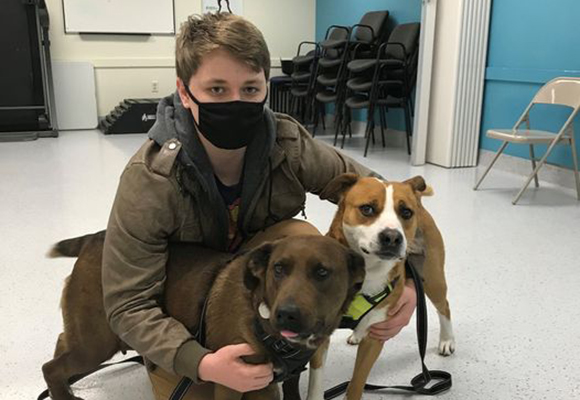Emotional Support Animals, or ESAs, have been for many a coping mechanism to get through the pandemic and more unstable mental health.

Emotional Support Animals, or ESAs, have been for many a coping mechanism to get through the pandemic and more unstable mental health. With concerns arising out of epidemiological circumstances, pressurized political climates, and burdensome expectations, among other world-shattering vicissitudes, an emotional support dog or cat can and has been dramatically helpful in stabilizing psychological states.
This need has seen an increase across students living in dorms. ESAs are becoming incrementally more prevalent, it seems, and it makes sense because who wouldn’t benefit from the emotional support of a friend during quarantine and lockdowns?
However, according to Stacy Mueller in Disability Services at Mount St. Joseph, “The University Disability Service Office has not seen an increase in requests for ESA animals since the start of the pandemic.”
Nevertheless, according to The Washington Post, “Some shelters and humane rescue groups are seeing double the typical number of requests from people to adopt dogs since the pandemic hit the United States in early spring.”
This truth is evident around campus. More and more students can be seen walking around with dogs and cats, and it is so smile-inducing. While it may be a testament to a more depressing subtext of heightened mental distress, seeing more animals being loved and providing joy and psychological betterment to nearly everyone they encounter is a positive result of the pandemic. Because animals, like us, could benefit from a symbiosis of emotional support.
Suffering from anxiety and depression myself (then again, who isn’t?), having two emotional support dogs has contributed to my psychological endurance throughout growing societal concerns. After my parents were evicted and made homeless, my dogs were surrendered to an animal shelter so that they didn’t have to face the bracing cold of oncoming winter. When I suddenly became so afraid that I could lose them forever, I had them registered as ESAs, worked with the school to allow them on campus, and then picked them up.
Since then, I have found solace in my dogs, Kiki and Roxy, when I could find it nowhere else. When people failed me, Kiki and Roxy were there to comfort me. And I really couldn’t ask for more.

